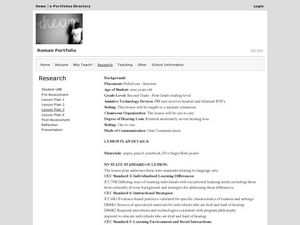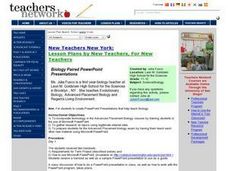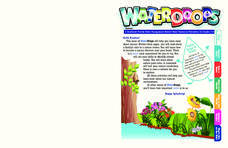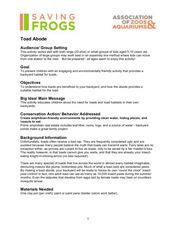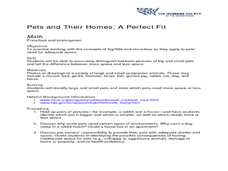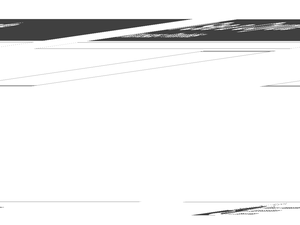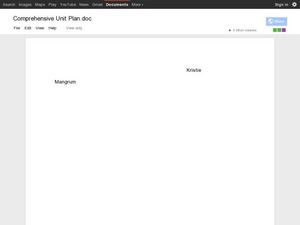Curated OER
Pets: Oh Behave
Students develop an understanding of how innate and learned behaviors and the environment determine behavior. They see how a variety of factors affects our pet's behavior-including species-specific traits, the environment, training, and...
Curated OER
Food Chains
Students study food chains by creating their own slide show using KidPix. They compare information after sharing their slide shows as a whole group. As the children are watching the slide shows of their peers, they tally every time...
Curated OER
Email Riddles
Students compose riddles that are shared in a chat session conducted on their local school network. Students create clues that describe a specific animal or object. They watch as their words are typed onto the chat screen and sent to the...
Curated OER
Parts of an Ecosystem
Fourth graders study the Great Salt lake and the ecosystem that encompasses it. They study the relationship between an individual of a species, a population of that species, a community that includes that population, and the...
Curated OER
Standard 4-Ecosystems
In this ecosystem worksheet, high schoolers answer questions about energy pyramids, food chains, consumers, producers, decomposers, biotic and abiotic factors in an environment, natural selection and the importance of biodiversity in an...
Curated OER
Dibble Pond Ecosystem
Students collect specimen and analyze it. In this biology activity, students analyze and evaluate the diversity found in specific environment. They use the correct terminology as they do their write up for the experiment.
Curated OER
Understanding and Stay Interested in Reading
Second graders make predictions about reading. In this remedial reading instructional activity, 2nd graders read a favorite author's story, and read about an animal or favorite hobby or how-to. Students discuss the various purposes for...
Curated OER
A Science Experiment With Crayfish
A crayfish can lead to a science experiment involving habitats, animal behavior, and anatomy..
Curated OER
The Queen's Empire
Students conduct Internet research on a variety of ant species and their habitats. They have an opportunity to observe ants in their environment. Areas of interest might include ant identification, colony life, the ant life cycle, and...
Curated OER
How Many Birds Would It Take To Keep A Jackal Alive?
Students examine the role of large families in some animal populations. They work together to complete an activity related to food supply. They discover the relationship between preys and predators.
Curated OER
TE Lesson: Habitat Mapping
Students examine the current technologies used in mapping resources in the marine environment. They look at remote sensing, sounding, and underwater vehicles. They examine image from the benthic habitat produced by the GIS in order to...
Curated OER
Interactive Journeys
Learners investigate environments and animals through the use of technology while on class field trips. The lesson is highly adaptable and can work with any field trip in many subject areas.
Curated OER
Habitats and Adaptations
Students research and describe the habitat and adaptations of a reef animal. After the student is assigned a habitat, they design and draw a cresture adapted to eat each food and to live in each habitat.
Curated OER
Management of Wildlife Resources
Students investigate how wildlife management policies affect the size of large animal populations. They develop a spreadsheet that incorporates a mathematical model to predict big game herd sizes, and using worksheet data manage a bison...
Curated OER
Amazing Australia (Grade K)
Students listen as the teacher reads "Possum Magic" to them. They watch the movie of the book, and create a T graph illustrating the differences and similarities between the book and movie. They research an animal and print a picture in...
Curated OER
Functions and Statistics: International Space Station: Up to Us
Students explore how the International Space Station was built and how it provides first-hand experiences with the space program. They view the NASA engineers discussing the major components of the International Space Station, their...
Curated OER
Biology Paired PowerPoint Presentations
Learners incorporate technology by creating a Microsoft PowerPoint. Students experiment with various animation techniques and slide formats, so that they become familiar with the program. They gather research information on topics using...
Curated OER
Waterdrops
In this environment learning exercise, students read an article about water drops and the nature center. They pretend that they are going to a nature center and write what they would hope see there. Students also identify living things...
Curated OER
Dress Like A Frog
Students recognize amphibian adaptations. In this amphibian lesson students explore amphibian adaptations that provide for successful living in their environments. A volunteer dresses up with all of the adaptations using everyday items...
Curated OER
Toad Adobe
Students explore the importance of toads and the need for toad habitats in the environment. In this animal habitats lesson, students create an adobe habitat for toads by using a clay pot. Students paint their pots and place them in their...
Curated OER
Pets and their Homes
Students explore the space needed for an animal to live in. For this pets lesson, students view pictures of animals and decide which one needs more space or less space to live. Students discuss animals environments and why certain spaces...
Curated OER
I See a Coyote
Students role-play coyotes looking for natural resources. In this natural resources lesson, students examine the relationship between animal life and the environment. Students play a game that demonstrates how natural resources affect...
Curated OER
The Life Cycle of the Mealworm
Fourth graders provide a habitat for live mealworms and observe their life cycle. In this animal life cycle and scientific inquiry lesson plan, 4th graders create a habitat for a live mealworm and observe and record related data as it...
Curated OER
Cows, Worms and Compost
Third graders explore agriculture by viewing a PowerPoint presentation in class. For this animal relationship lesson, 3rd graders identify the types of farm animals humans feed on and their dependency on such small insects like worms....








